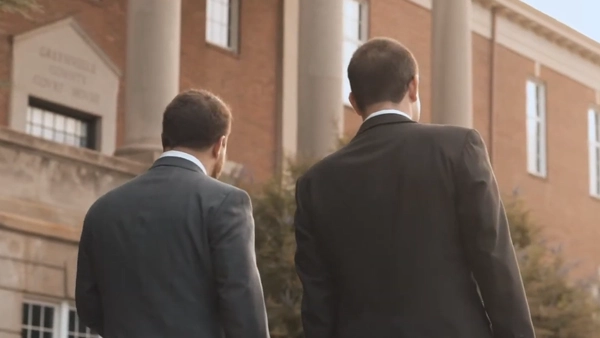Having a ticket issued against you after a traffic accident is a fairly common occurrence, even if you think you were not at fault for the incident. Even those people who think they are not at fault or deserving of a traffic violation often send in the money and pay the fine without ever going to traffic court. However, what happens if you are cited for an offense that is more serious and may even carry potential jail time – like a DUI or reckless driving? How would the disposition of your traffic and/or criminal matter ultimately affect your civil case and other aspects of your life?
What is the Difference Between a Criminal and Civil Case?

It is important to start by noting that civil and criminal cases are distinctly different matters. They have different case numbers, are heard in different courts, and require the services of attorneys who focus in criminal defense and/or personal injury matters. The most important difference between the two are:
- Criminal Case: Cases are brought by the state or federal government against you for violation of a statute; i.e., State of South Carolina vs John Doe. These cases carry potential jail/prison time and/or restitution (statutory fines); cases
- Civil Case: Cases are filed on behalf of individuals and/or companies; i.e., Jane Smith vs John Doe. These cases carry no jail time but instead may result in a financial award or judgment
A person’s criminal case and civil case operate independent of one another and the outcome of one does not necessarily determine the outcome of the other. The standard of proof is much higher in a criminal case, so a person may be found “not guilty” in a criminal case but still be held liable financially in a civil case. Occasionally, such as rare instances when a person is injured by another person’s negligence while the injured person is also driving drunk, a person may be found guilty in a criminal case but obtain the benefit of a civil judgment in the civil case.
Any time that a person is faced with an instance where they are the subject of a criminal case and civil case involving the same event or conduct, it is important that they understand the impact that their plea in a criminal case may have on the civil case and other matters. We have briefly addressed the civil implications of the various types of pleas in criminal cases below. However, any time a person is involved in a criminal case and civil case, they should strongly consider consulting with an attorney or attorneys with experience in both types of cases.
Not Guilty Plea
A plea of not guilty in a criminal matter means you are not admitting fault to the charges being brought against you and you have a right to a trial by jury. You can opt to have the case tried by the judge only as well, which is called a bench trial.
Guilty Plea
If you opt to enter a plea of “guilty,” you are forfeiting your right to a trial and to cross examine any witnesses. If the judge accepts your guilty plea, you will be sentenced, which may include fines, jail/prison, or both.
No Contest (Nolo Contendere)
Another option is to plead “no contest,” which is also referred to as nolo contendere. This is when you don’t want to contest the charges against you, but you refuse to admit guilt as well. It is essentially the same as a guilty plea, without uttering the word “guilty” in the court record. It’s important to note that the judge won’t change his sentencing based on a plea of no contest as opposed to guilty, and your criminal record will still reflect a conviction.
So, what is the benefit of a no contest plea versus guilty plea? One context where a plea of no contest may be used when there is a companion civil case pending. A plea of no contest cannot be used as an admission of guilt in a civil matter. While it is not admissible as an admission of fault, opposing council may still be able to use it to try and impeach you.
Alford Plea
The Alford plea is similar to “no contest,” and is subject to the same sentencing guidelines and consequences of a guilty plea. It’s named after a famous United States Supreme Court case, North Carolina v. Alford. The main difference here is that this plea constitutes a refusal to admit guilt as well as a proclamation of innocence. The belief is that even though the defendant feels they are innocent, the prosecution has evidence that the defendant believes will still result in a guilty conviction. Judges may or may not accept an Alford plea, and it can complicate civil matters down the line as judges are divided on whether they operate the same as a no contest plea.
Conditional Plea
You may have also heard of a conditional plea; however, they are not valid in South Carolina at the state court level. If you are facing federal charges, a conditional plea may be an option. A conditional plea is just as it sounds – a defendant pleads guilty, but retains the right to appeal a specific issue that may absolve him or her.
What Happens After a Criminal Plea is Entered
Your defense attorney may be able to reach a plea bargain agreement, known as a plea deal, with the prosecution. This means you may receive a lighter sentence in exchange for a guilty plea. An example would be pleading guilty to a lesser charge in exchange for the original charge being dismissed.
If you entered anything else but “not guilty,” your case will immediately move into the sentencing phase, where it is up to the judge to render a decision on how much the fine and/or jail time is.
Other Possible Repercussions of a Guilty Plea
If you’re facing criminal charges, it’s important you seek advice of a qualified Greenville criminal defense attorney prior to pleading guilty. Guilty pleas can have far reaching effects, far beyond just the disposition of a civil trial.
Here are a few of the more important things to consider when you’re contemplating entering a guilty plea.
- A guilty plea can affect your ability to seek employment. Almost all job applications have a section that asks if you’ve been convicted of a criminal charge. Potential employers often perform a background check, so declining to state is not an option.
- Guilty convictions may cause you to be denied government assistance, like student loans. Certain types of convictions automatically exclude you from the receipt of government assistance, i.e., sex crimes or a violent crime.
- Other government assistance that could be denied includes food stamps, housing assistance, or other forms of public assistance.
- Some felony convictions may take away your right to vote for a specified amount of time.
- In South Carolina, convicted felons are not allowed to own guns.
Why You Should Hire a Greenville Criminal Defense Attorney for Your Criminal or Civil Case
If you are facing criminal charges, even for something you deem minor like a traffic offense that may contain jail time, it is very important to contact a knowledgeable criminal defense attorney. Not only can your criminal plea affect your standing in a civil trial down the line, it can have a devastating effort on your overall life if you’re left with a guilty conviction on your criminal record. Please contact the law office of David R. Price, Jr., P.A. for a consultation today.







